Jokowi-clad-in-white-with-Indonesia-diaspora-in-San-Francisco.-300x162.png" alt="President Jokowi (clad in white) with Indonesia diaspora in San Francisco." width="300" height="162" /> President Jokowi (clad in white) with Indonesia diaspora in San Francisco.
San Fransisco, 09 Jumadal Awwal 1437/18 February 2016 (MINA) – Indonesia’s plea that its overseas citizens and diaspora return home, for good, and contribute in building the country. This was reflected in the recent ‘talent-hunt’ of President Joko Widodo in San Fransisco.
However, immigrating back home is not a simple case to many if not most of these Indonesians, who had at the first place, ventured out of their comfort zone for greater opportunities, outside of their homeland. For many of these bright individuals, returning home could mean much more than contributing to the country. It could be a big sacrifice on their part.
And that is exactly what Jokowi is asking the diaspora. During his trip to the United States, President Jokowi had a dialogue with about 800 Indonesian citizens and diaspora in San Francisco, California, on Tuesday evening (16/2). He had just attended the two-day US-ASEAN Summit in California which ended on Tuesday.
In the two-hour gathering with the 800 people at San Francisco’s Auditorium Palace of Fine Arts, the president made a strong plea to Indonesians with IT knowledge and experience to return home and work as technopreneurs or IT developers, Mi’raj Islamic News Agency (MINA) quoted GIVnews as reporting.
Also Read: Densus 88 Confirms Jakarta School Explosion Was Not Terror-Related
The Indonesian president, who is also known as Jokowi, told the audience, “I wish that during our time which is now running so fast, there will be 1,000 technopreneurs and IT developers in Indonesia. If Indonesia does not prepare enough technopreneurs and IT developers, it will lag behind other countries.”
He noted that e-commerce development in Indonesia would provide a great ‘golden opportunity’ for technopreneurs.
The president then mentioned a number of IT applications that could be developed for a range of development sectors in Indonesia like weather forecasting, fishery, farming, and also IT applications for the operation of small and medium businesses.
Indonesia even needs applications for traditional markets, said the president. For example, he said, when the price of a certain commodity is high in a market, then similar products can be supplied from other markets.
Also Read: Police Name Suspect in Jakarta High School Explosion
“So, if possible, we will not allow other countries to take up such opportunities,” he said.
Meanwhile, during the question and answer session, an Indonesian engineer who works at a Silicon Valley company asked whether the Indonesian government would fully support the prospective IT businesses, including capital support.
To her question, President Jokowi answered, “If you wish to return (to Indonesia) just do it. That your business will perhaps bob up and down, such a situation is a natural process of becoming an entrepreneur.” His remarks caused laughter in the audience.
On the same occasion, Minister of Communication and Information Rudiantoro told the gathering that his office had finished preparing a roadmap for a digital industry in Indonesia. The roadmap, the minister said, will be translated into a presidential regulation (perpres). The funding for the development of the digital industry will be from loans for small businesses (KUR), Rudiantoro said.
Also Read: At World Peace Forum, Kalla Says ‘No One Wants to Be a Victim of War’
Since taking office 15 months ago, President Jokowi had repetitively aired his ambition to develop e-commerce and information technology companies in Indonesia in a big way.
He has a dream of making Indonesia the biggest digital economic area in Southeast Asia with e-commerce as one of the main drivers.
The patriotic calls for Indonesians to go back home always leave more questions unanswered. And at the meantime, those questions and challenges would have to be addressed by the individuals who eventually decide to return back home, as part of their sacrifice. (R07/R01)
Mi’raj Islamic News Agency (MINA)








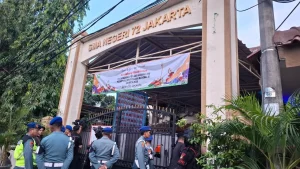
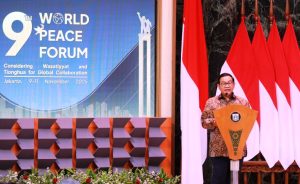



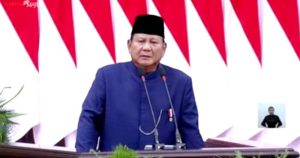
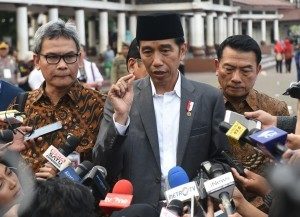
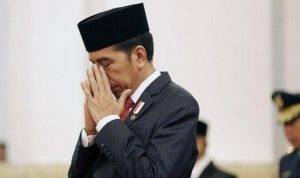
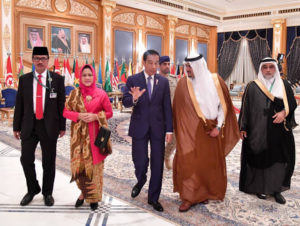
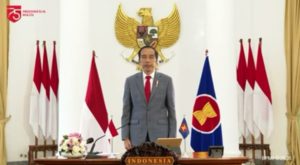
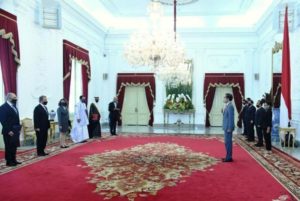













 Mina Indonesia
Mina Indonesia Mina Arabic
Mina Arabic